
Japan Travel Entry Requirements for 2024
As we approach 2024, Japan remains a top travel destination, with its stunning landscapes, rich history, and vibrant urban life attracting visitors from around the globe. Whether you're planning a vacation, business trip, or cultural exploration, knowing the latest entry requirements is crucial for a smooth journey. This guide provides an up-to-date overview of Japan’s 2024 travel entry requirements, covering essential documentation, visa guidelines, health regulations, and more to help you prepare effectively.
Contents
3. COVID-19 and Health Regulations
4. Customs Declarations and Prohibited Items
6. Currency and Financial Documentation
1. Passport Requirements
To enter Japan, all foreign visitors must present a valid passport. For most nationalities, the passport must be valid for the duration of your stay. However, some nationalities may require at least six months of validity beyond the intended departure date. It's recommended to verify your passport’s validity and ensure it has at least one blank page for entry and exit stamps. Additionally, making photocopies or keeping digital backups of your passport can be useful in case of loss or theft.
2. Visa Requirements
Visa requirements for Japan depend on your nationality, travel purpose, and duration of stay. Many countries, including the United States, Canada, Australia, and EU nations, enjoy visa exemptions for short-term tourism or business visits, typically up to 90 days. However, if your nationality requires a visa or if you plan to stay longer than the permitted period, you must apply in advance through a Japanese embassy or consulate.
For travelers needing a visa, common requirements include a completed application form, passport-sized photos, and proof of sufficient financial means. If visiting friends or relatives, a letter of invitation may be required. For longer stays, work, or study purposes, ensure you have the appropriate visa category and documents prepared.
3. COVID-19 and Health Regulations
As of 2024, Japan may still have some COVID-19 regulations in place for travelers, depending on global health trends. It’s essential to check Japan’s Ministry of Health, Labour, and Welfare website for the latest updates on COVID-19 entry requirements, including vaccination proof, potential PCR test requirements, or quarantine guidelines.
For those required to provide proof of vaccination, ensure your documentation includes necessary details such as the date, vaccine type, and the issuing authority. Digital certificates or apps may be accepted, but it’s always advisable to carry a printed copy as well.
4. Customs Declarations and Prohibited Items
All visitors to Japan are required to complete a customs declaration upon entry. Japan has strict regulations on certain items, including prohibited or restricted items like fresh produce, certain types of medication, and firearms. It’s recommended to review Japan’s customs website for an updated list of prohibited items and requirements for importing prescription medications.
If you plan to bring prescription medication, ensure it complies with Japanese regulations. Some drugs that are legal elsewhere, including certain stimulants and narcotics, are prohibited in Japan. For permitted medications, bring a prescription or medical certificate from your doctor. In some cases, you may need to apply for an import certificate in advance.
5. Travel Insurance
While travel insurance is not mandatory for entry into Japan, it is highly recommended. Medical treatment in Japan can be expensive, and having a comprehensive travel insurance policy covering medical expenses, emergency evacuation, and trip cancellations can provide peace of mind. Many insurance providers offer coverage specifically tailored for Japan, including coverage for sports like skiing if you plan to visit during winter.
Additionally, some insurance policies may include COVID-19 coverage, which can be useful in case of unexpected delays or medical issues related to the pandemic. Be sure to carry both digital and printed copies of your insurance policy to easily access coverage details if needed.
6. Currency and Financial Documentation
Japan remains a cash-friendly society, and having Japanese yen (JPY) on hand is essential, particularly for rural areas or small businesses that may not accept cards. It’s a good idea to exchange some currency before you arrive or withdraw yen from ATMs at the airport.
Ensure your credit or debit cards are set up for international transactions. Some travelers may also bring financial proof, such as recent bank statements, as immigration officers may occasionally request proof of sufficient funds for your stay. Although this is not always required, having these documents accessible can smooth your entry if asked.
7. Emergency Contacts and Embassy Information
Keeping a list of emergency contacts is a wise step for any traveler. This should include contact details for family or friends, as well as your country’s embassy or consulate in Japan. In case of lost documents or other emergencies, your embassy can provide assistance. Be sure to also familiarize yourself with Japan’s emergency numbers: 110 for police and 119 for fire and ambulance services.
Having this information on hand, whether digitally or printed, can help you stay prepared for unexpected situations and ensure you have support available if needed.
8. Tips for a Smooth Entry
Double-Check Entry Requirements: Regulations can change, so it’s advisable to check Japan’s immigration and health requirements close to your departure date.
Keep Your Documents Organized: Have your passport, visa (if required), and COVID-19 documents in an easily accessible place to streamline the entry process.
Stay Updated on Customs Rules: Familiarize yourself with Japan’s customs regulations to avoid issues with restricted items and prescription medications.
Prepare Local Currency: Exchange some cash or locate an ATM at the airport to ensure you have yen available upon arrival.
Conclusion
By understanding and preparing for Japan’s entry requirements in 2024, you’ll ensure a smoother arrival and a more enjoyable journey. From passport and visa regulations to COVID-19 guidelines and customs rules, having the right documents and staying informed about the latest requirements is essential for any traveler. With these preparations in place, you can focus on experiencing the beauty and culture of Japan to the fullest. Safe travels!
分享
You may also like
-

參觀日本的情趣酒店區:會發生什麼
日本的情趣酒店區以其獨特而迷人的隱私、創造力和奢華而聞名。雖然情趣酒店最初是為情侶提供私人休養地,但如今已發展成為日本文化和熱情好客的獨特方面。這些飯店提供主題客房、獨特的設施和令人驚訝的實惠價格,是日本夜生活的一個有趣的方面。本指南...
-

東京 24 小時咖啡廳的 10 大深夜用餐地點
東京充滿活力的夜生活不僅限於酒吧和夜總會,其蓬勃發展的深夜餐飲文化可以讓美食愛好者隨時滿足。該市的 24 小時咖啡館為當地人和尋求放鬆、充電和享用美食的地方的遊客提供舒適的空間和多種美食選擇。從適合家庭的餐廳到時尚的自習休息室,這些咖...
-

東京最佳夜間探險夜遊
東京的夜生活以其活力、活力以及傳統與現代體驗的獨特融合而聞名。從燈火通明的寺廟到霓虹燈閃爍的城市景觀和隱藏的文化瑰寶,東京提供一系列夜間旅遊,揭示這座城市的多樣化美麗和天黑後的脈動。無論您是尋求文化見解、壯麗景色,還是對東京最令人興奮...
-

日本深夜飲食文化:8 種最佳街頭小吃
日本的深夜飲食文化是一種充滿活力的體驗,尤其是在東京和大阪等繁華城市,美味的街頭小吃攤和休閒餐廳提供獨特的風味直至深夜。從美味的拉麵到鐵板串,日本夜食提供了該國多樣化烹飪的正宗味道。以下是您在日本進行難忘的深夜冒險時需要嘗試的八種街頭...
-

東京 7 間屋頂酒吧,欣賞迷人景觀
東京的屋頂酒吧提供了一些最佳方式,讓您可以一邊欣賞城市天際線,一邊享用飲料、享受氛圍,並常常欣賞令人難忘的日落美景。從俯瞰繁華新宿區的豪華飯店酒廊到可欣賞東京鐵塔美景的休閒露台,這些酒吧可滿足各種品味和預算。以下是東京七家最佳屋頂酒吧...
-

東京 10 家最適合舞蹈和音樂愛好者的夜總會
東京的夜生活以其多樣性和活力而聞名,夜總會的範圍從充滿活力的舞池到專屬的 VIP 休息室。東京的俱樂部提供從電子音樂到嘻哈音樂和日本流行音樂等各種音樂,可以滿足各種類型的夜貓子的需求。以下是東京 10 家最佳夜總會的指南,非常適合度過...
-

東京必去的 8 家主題酒吧和咖啡館
東京以其創意和奇特的主題酒吧和咖啡館而聞名,為當地人和遊客提供身臨其境的體驗。從受喜愛的動漫人物啟發的咖啡館到裝飾精美的酒吧,這些場所都能提供令人難忘的體驗。以下是東京八家必去的主題酒吧和咖啡館的指南,它們展示了這座城市的俏皮精神和對...
-

東京夜生活指南:新宿、澀谷和六本木亮點
東京的夜生活具有傳奇色彩,在一些最具標誌性的地區(新宿、澀谷和六本木)提供充滿活力的活力、娛樂和獨特的體驗。從霓虹燈閃爍的繁華街道到隱蔽的酒吧、熱鬧的俱樂部和卡拉 OK 場所,每個區域都提供了東京充滿活力的夜生活的不同品味。本指南探討...
-
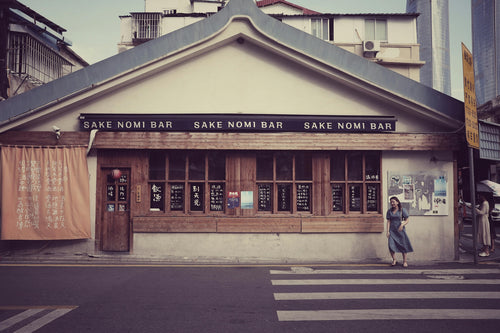
東京 7 家最佳日本清酒酒吧
東京擁有日本最好的清酒酒吧,為當地人和遊客提供探索日本清酒豐富風味和傳統的機會。從專門提供稀有啤酒的小型隱密酒吧到提供豐富清酒單的時尚場所,東京的清酒場景適合每個人。以下是東京七家最好的清酒酒吧的指南,每家清酒酒吧都有自己獨特的氛圍和...
-

東京 6 個最佳觀景台
東京的觀景台提供了城市中最好的全景,讓遊客有機會從高處俯瞰這座龐大的大都市。無論您是想欣賞日落、夜間欣賞東京的天際線,還是在陽光明媚的日子清楚地看到富士山,這些觀景台都能為您帶來難忘的體驗。本指南涵蓋了東京的六個頂級觀景台,每個觀景台...
-
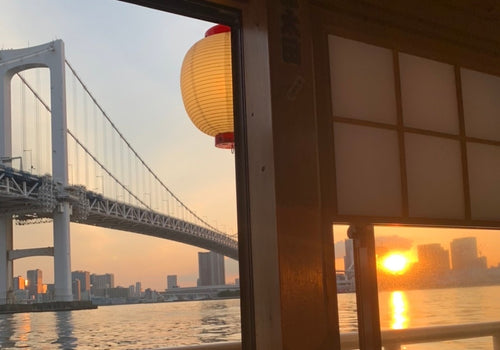
東京夜間遊輪:欣賞城市景觀
東京的天際線在任何時候都令人著迷,但在夜間遊輪上從水中體驗它為這座城市的活力增添了一層神奇的色彩。東京夜間遊輪可欣賞到令人難以置信的燈光城市景觀,東京塔、彩虹橋和未來派台場區等標誌性地標照亮了天際線。無論您是尋求浪漫的夜晚、獨特的觀光...
-
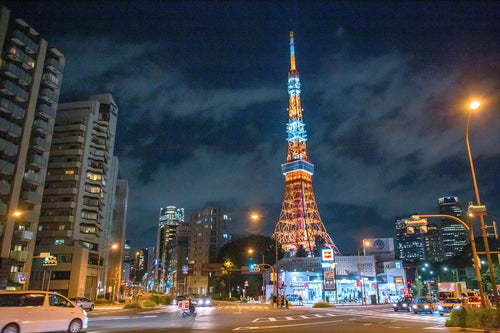
六本木藝術與夜生活指南
六本木是東京最具活力的地區之一,以其熱鬧的夜生活、精緻的藝術場景和多樣化的餐飲選擇而聞名。六本木位於東京市中心,已從一個受歡迎的夜生活場所發展成為文化中心,擁有藝術博物館、畫廊和一系列娛樂場所,可滿足當地人和國際遊客的需求。本指南將探...
-

新宿歌舞伎町夜生活指南
新宿歌舞伎町區被稱為東京的“不夜城”,是東京夜生活的中心。歌舞伎町以其霓虹燈閃爍的街道、熙熙攘攘的娛樂場所和充滿活力的活力而聞名,是尋求難忘夜晚的遊客的必遊目的地。從主題酒吧和卡拉 OK 場所到隱藏的瑰寶和熱門景點,歌舞伎町提供各種體...
-

東京6處最佳夜景景點
東京的夜晚是令人驚嘆的奇觀,燈火通明的摩天大樓、標誌性地標和熙熙攘攘的街道營造出充滿活力的夜間城市景觀。對於當地人和遊客來說,東京提供了一系列夜景景點,展示了這座城市的活力。本指南介紹了體驗東京迷人夜景的六個最佳地點,每個地點都提供獨...
-

日本 12 家最適合品嚐和遊覽的清酒釀酒廠
日本的清酒文化以其深度、複雜性和豐富的歷史而聞名於世。清酒(或稱日本酒)不僅是一種飲料,也是深深植根於當地習俗和原料的日本工藝的證明。參觀清酒釀酒廠或坂倉,讓遊客有機會親身體驗傳統和現代的釀造技術,品嚐獨特的清酒品種,並了解每瓶酒背後...
-

如何在日本居酒屋享受一晚
日本居酒屋是休閒、熱鬧的場所,當地人下班後聚集在一起享用飲品、分享小菜,並與朋友或同事放鬆身心。與酒吧或小吃吧類似,居酒屋提供溫馨的氛圍以及一系列美味的菜餚和飲料。在居酒屋度過一個晚上是一種典型的日本體驗,遊客可以品嚐各種食物,從烤串...
-

探索日本卡拉 OK 文化:8 個最佳唱歌地點
卡拉 OK 是日本文化不可或缺的一部分,為朋友、家人甚至同事提供了一種有趣的放鬆方式。卡拉OK(意為「空管弦樂團」)起源於日本,現已發展成為適合所有年齡層和背景的全民消遣活動。日本卡拉 OK 場所以其私人房間、先進的音響系統和豐富的歌...
-

Golden Gai 5 家推薦酒吧
黃金街坐落在東京新宿區的中心地帶,是該市最具代表性的酒吧區之一。該地區以其狹窄的小巷和小酒吧而聞名,可以讓您一睹東京的過去,並享受獨一無二的充滿活力的夜生活體驗。幾個街區內擠滿了大約 200 家獨特的酒吧,每家酒吧都有自己的個性、裝飾...
-

10 個您應該參觀的寧靜日本花園
日本花園以其美麗、寧靜和體現與自然和諧的複雜設計而聞名。這些花園是精心設計的空間,結合了岩石、水、植物和沙子等自然元素,創造出寧靜的景觀。日本花園植根於禪宗佛教和神道教原則,是反思、冥想和美感享受的空間,為遊客提供遠離日常生活的寧靜休...
-

日本和服遺產:象徵意義、風格和觀賞地點
和服是日本的傳統服裝,是日本文化的美麗象徵。從複雜的圖案和顏色到穿著方式,和服體現了幾個世紀的歷史、傳統和藝術。和服最初是男女的日常服裝,現已發展成為一種文化標誌,通常在特殊場合和儀式中穿著。每件和服都透過其顏色、圖案和布料講述一個故...
-
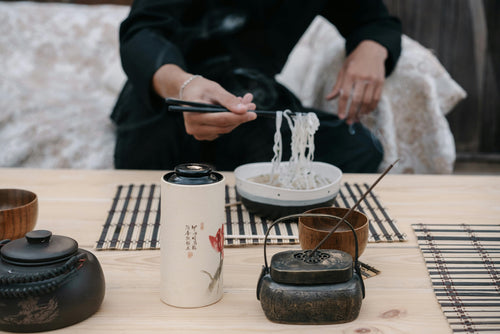
去日本旅遊時要注意的禮儀
日本文化充滿尊重、禮貌和體貼,使得禮儀成為日常生活中不可或缺的一部分。對於遊客來說,了解日本的習俗和禮儀可以增強旅行體驗並表達對該國文化價值觀的欣賞。了解日本禮儀的基本知識將幫助您應對社交場合、尊重當地習俗並給您遇到的人留下積極的印象...
-

探索日本武士歷史的 7 個最佳地點
日本武士的歷史是一部充滿榮譽、技能和深厚文化影響的歷史,可以追溯到幾個世紀前,在這個國家的身份上留下了不可磨滅的印記。從古老的城堡和武士住宅到充滿盔甲和劍的博物館,日本提供了許多目的地,遊客可以在那裡探索武士的豐富遺產。這些武士受到武...
-

日本藝伎文化:神話與現實
藝妓是日本技藝精湛的表演者和傳統藝術的守護者,長期以來一直吸引著世界各地的人們。藝伎以其優雅、精緻的美麗以及對日本傳統音樂、舞蹈和談話的掌握而聞名,已成為日本文化的標誌性象徵。然而,圍繞著藝妓文化存在著許多神話和誤解,常常被西方的解釋...
-

日本獨特的建築:8 大傳統與現代地標
日本以其古代建築遺產和尖端現代設計的獨特融合而聞名。從數百年歷史的寺廟和城堡到當代的摩天大樓和創新的公共空間,日本建築體現了該國對傳統和前瞻性創造力的深刻尊重。本指南探索了日本八個最具標誌性的建築地標,提供了傳統和現代風格的旅程,展示...
-
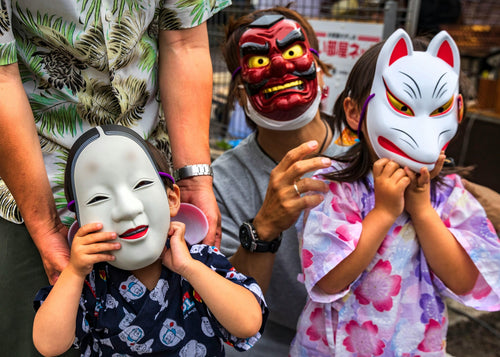
不可錯過的 10 個日本傳統節慶(祭)
日本的節日,或稱為“祭”,是對文化遺產的充滿活力的慶祝活動,以精緻的服裝、熱鬧的遊行和古老的儀式為特色。從盛大的城市活動到親密的鄉村聚會,每個節日都是獨一無二的,並植根於當地的傳統、傳說或宗教信仰。這些節日通常強調季節變化,例如春天的...
-

日本三大溫泉:名湯指南
日本以其天然溫泉或“onsen”(溫泉)而聞名,為遊客提供了在美麗風景中在富含礦物質的水中放鬆身心和恢復活力的獨特機會。在全國數千個溫泉中,有三個溫泉因其歷史意義、治癒效果和無與倫比的美麗而贏得了“日本三大溫泉”(*日本三名泉*)的稱...
-

日本藝術探索:日本欣賞藝術的最佳地點
日本是一個擁有豐富藝術遺產的國家,從數百年歷史的傳統工藝到現代創新的裝置。無論您是著迷於古代水墨畫、江戶時期的木刻版畫,還是當代數位藝術,日本都提供了無數體驗各種形式藝術的機會。東京和京都等大城市擁有世界知名的藝術博物館和畫廊,而鄉村...
-

日本花火大會指南:何時何地去
日本夏季煙火節被稱為“花火大會”,是該國最受期待的活動之一,吸引了大量人群觀看令人眼花繚亂的色彩和燈光錶演。這些節日植根於數百年的傳統,將壯觀的煙火與當地文化相結合,提供日本夏季慶祝活動的獨特體驗。每場煙火表演都經過精心策劃,配合音樂...
-
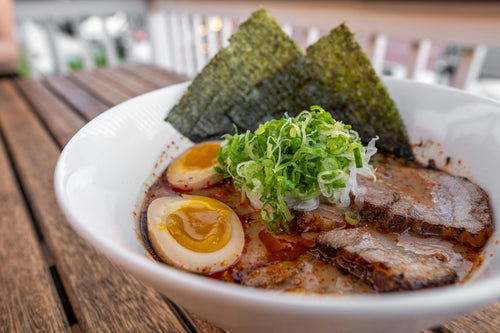
日本哪裡可以體驗拉麵製作課程
拉麵是日本最受歡迎的菜餚之一,具有無數的地域風格和風味,吸引來自世界各地的美食愛好者。從福岡濃鬱的奶油豬骨到北海道清淡鹹味的鹽味,拉麵的種類繁多。在日本體驗一碗拉麵本身就是一種享受,但學習自己製作拉麵可以讓您更深入地欣賞這道標誌性菜餚...
-
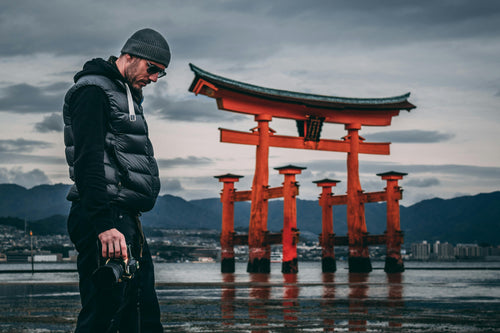
能量點之旅:日本著名的寺廟與神社
日本是一個充滿精神歷史的國家,參觀其寺廟和神社不僅可以一睹其過去,而且還有機會與該國強大的能量點或「能量點」建立聯繫。這些遺址被認為散發著精神能量,幾個世紀以來一直受到那些尋求健康、成功和個人成長的人的珍惜。從繁華城市的古老寺廟到森林...
-

聯合國教科文組織世界遺產日本旅遊指南
日本擁有許多聯合國教科文組織世界遺產,每個組織都可以讓您一窺該國豐富的文化遺產和自然美景。這些遺址,從古老的寺廟、歷史悠久的城堡到風景優美的風景,體現了日本的歷史意義和對大自然的敬畏。參觀這些遺址不僅可以讓遊客欣賞日本的建築和精神歷史...
-
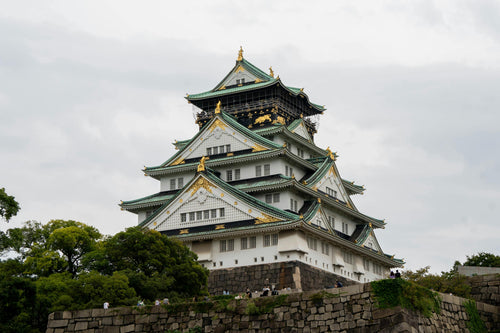
日本 5 座著名城堡:歷史與亮點
日本擁有世界上一些最美麗、最具歷史意義的城堡。這些城堡建於封建時代,是堡壘、住宅和權力的象徵。如今,它們已成為文化瑰寶,讓遊客可以一睹日本豐富的歷史和輝煌的建築。本指南探索日本最著名的五座城堡,每座城堡都有獨特的特色和迷人的歷史。從雄...
-
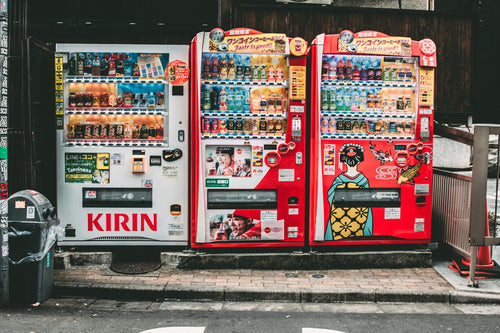
日本自動販賣機提供的 10 種獨特飲品值得嘗試
日本以其自動販賣機而聞名,提供種類繁多的飲料,而不僅僅是軟性飲料和瓶裝水。從獨特的口味到創新的飲料,日本的自動販賣機為遊客和當地人帶來了許多驚喜。本指南探討了 10 種只能在日本自動販賣機中找到的獨特飲料,每種飲料都有其獨特的風味、文...
-
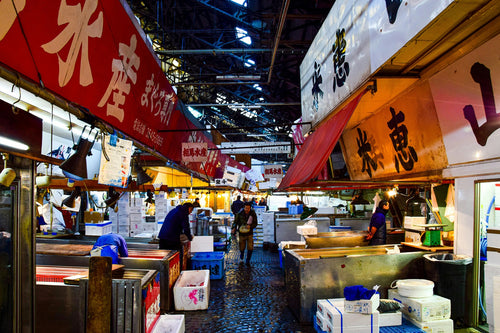
東京市場指南:探索築地與豐洲市場
東京的築地市場和豐洲市場是美食愛好者和對日本豐富的烹飪文化感興趣的任何人的必去景點。這兩個市場都讓遊客可以一睹日本海鮮產業的核心,每天都有新鮮的魚類和農產品交易,供應商和買家聚集在一起採購最好的食材。築地保留了其作為歷史悠久的露天市場...
-

在東京體驗傳統茶道
日本茶道(或稱「chanoyu」)是一種充滿傳統、美學和正念的文化體驗。在東京,眾多的茶館和文化中心為遊客提供了沉浸在這種優雅儀式中的機會。體驗傳統茶道可以讓參與者了解日本待客之道的細微差別、茶的象徵意義以及自然、藝術和精神的和諧融合...
-
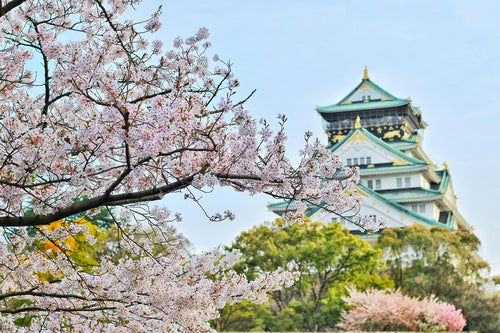
東京七大賞櫻地點
東京的春天是櫻花季的代名詞,這是一個令人驚嘆的時期,城市的公園、河邊和花園綻放出粉紅色和白色的色調。櫻花或「櫻花」在日本文化中佔有特殊的地位,象徵著生命的新生和短暫的本質。無論您是當地人還是遊客,東京都有許多風景名勝,您可以在那裡體驗...
-

什麼是溫泉?歷史、福利和禮儀指南
溫泉是日本備受推崇的溫泉文化,它獨特地融合了放鬆、美景和根深蒂固的傳統。溫泉以其富含礦物質的治療水、寧靜的山地環境和具有重要文化意義的儀式而聞名,為遊客提供了寧靜的休憩場所,並與日本的自然景觀有著深厚的聯繫。本指南將帶您了解溫泉文化的...
-

什麼是清酒?其製作方法及歷史
清酒是一種由發酵米製成的傳統日本酒精飲料。它在日本已有一千多年的歷史,並因其獨特的風味和文化意義而在全世界流行。在本文中,我們將探討清酒是什麼、它是如何釀造的,以及這種深受喜愛的飲料背後的迷人歷史。 本指南將帶您了解清酒的基本面,...
-

東京附近8處風景優美的溫泉
東京是個繁華的大都市,但城外卻有一些日本最寧靜的溫泉,提供令人驚嘆的美景,讓您有機會在大自然中放鬆身心。無論是坐落在茂密的森林中、海岸邊或山區,這些溫泉都是逃離城市喧囂的完美場所。以下是東京附近 8 個風景最美的溫泉。 內容 ...
-

東京十大值得參觀的博物館
東京擁有各種各樣的博物館,可以滿足從藝術和歷史到技術和流行文化的各種興趣。無論您是有興趣探索日本傳統藝術還是體驗最新的數位創新,東京的博物館都能提供吸引各個年齡層遊客的身臨其境的體驗。每個博物館都提供了對日本文化和全球藝術場景不同方面...
-
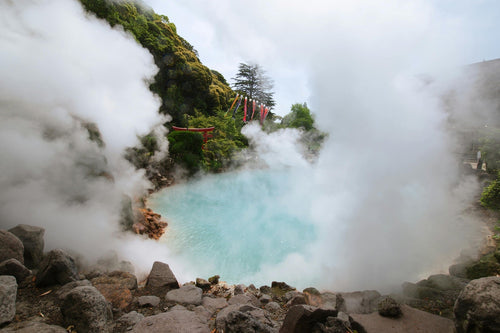
東京 9 處最佳溫泉和浴室
東京以其充滿活力的城市活力而聞名,但它也是在溫泉 (onsen) 和傳統浴室 (sento) 中放鬆身心、恢復活力的絕佳場所。這些空間為體驗以健康和放鬆為中心的日本沐浴文化提供了獨特的機會。從豪華的溫泉度假村到歷史悠久的懷舊錢湯,東京...
-
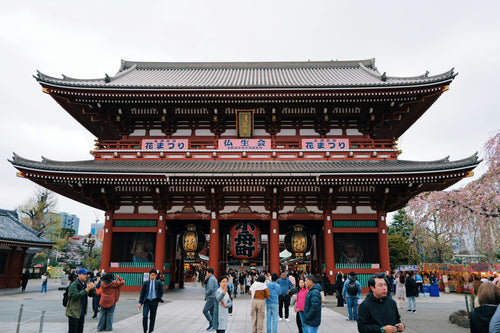
東京附近 15 處著名的寺廟和神社
東京及其周邊地區擁有許多著名的寺廟和神社,展示了日本豐富的精神和文化遺產。這些聖地通常坐落在寧靜的環境中,提供遠離喧囂城市的寧靜場所。無論您是尋求建築之美、歷史氣息,還是寧靜的反思之地,這些寺廟和神社都是必遊之地。以下是東京附近 15...










































